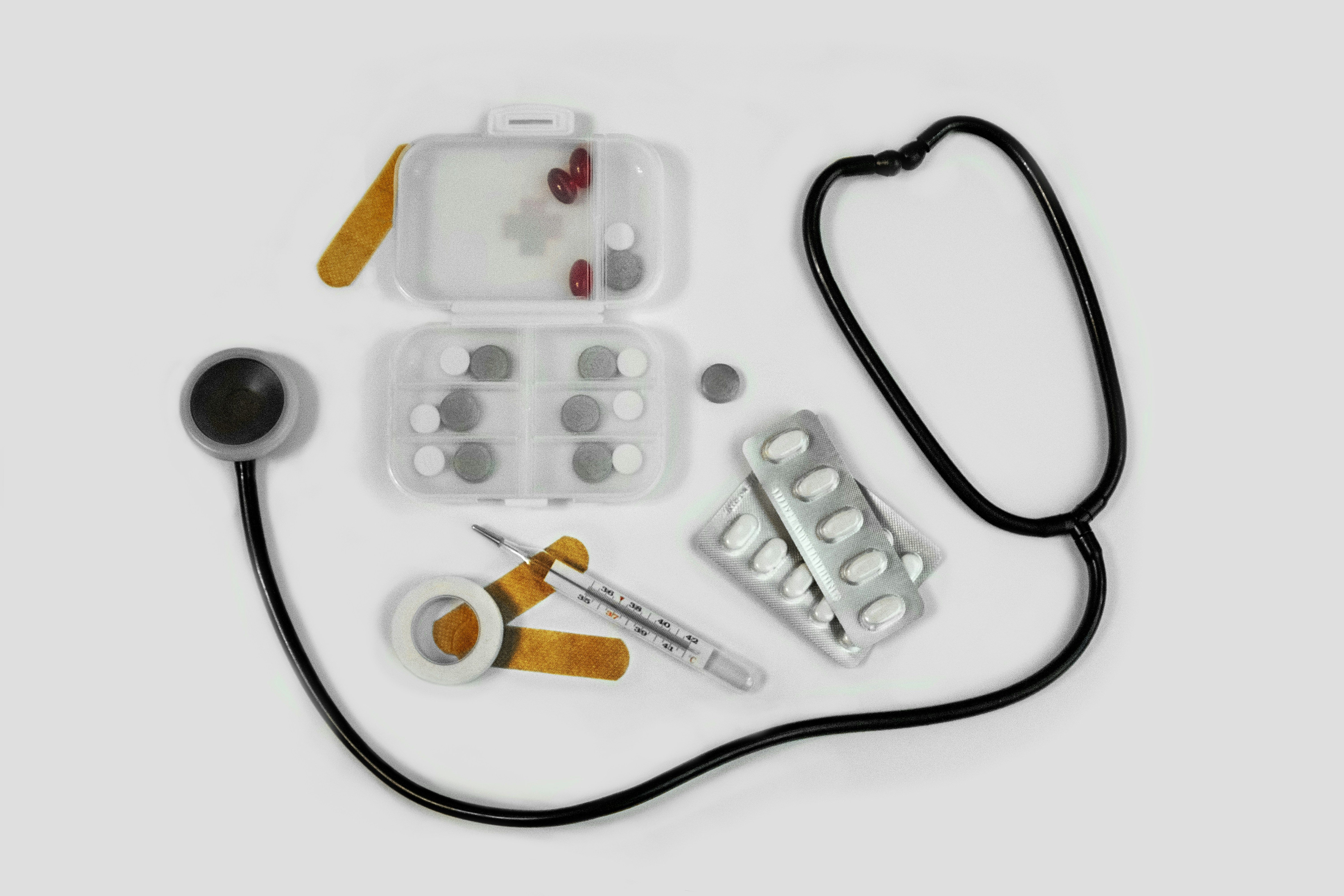Our medicine cabinets are filled with different pills and syrups. Some we can buy without a doctor's note. Others need a prescription. Knowing which one to use matters.
This guide will help you understand the difference between over-the-counter (OTC) medicines and prescription antibiotic medicines. With this knowledge, you can make better choices about your health.
Are you wondering if that cough needs a doctor's visit? Or why your doctor won't give you antibiotic pills for your cold? Keep reading to find out.
What Are Over the Counter Medications?

OTC medications are medicines you can buy without a doctor's prescription. You can find them at drugstores, grocery stores, and even some gas stations.
Even though you don't need a doctor to buy them, the FDA still makes sure they're safe when used correctly.
Common Types of OTC Medicines
For Pain and Fever
- Acetaminophen (Tylenol): Helps with pain and fever
- Ibuprofen (Advil, Motrin): Helps with pain, fever, and swelling
- Naproxen (Aleve): Lasts longer for pain and swelling
For Colds and Flu
- Decongestants: Clear stuffy noses
- Antihistamines: Help with allergies and some cold symptoms
- Cough medicines: Stop coughing or help clear mucus
For Allergies
- Non-drowsy allergy pills (Claritin, Zyrtec)
- Allergy nose sprays
- Eye drops for itchy eyes
For Stomach Issues
- Antacids for heartburn
- Antidiarrheals for diarrhea
- Laxatives for constipation
OTC Medicines Benefits and Limitations

OTC medicines offer several benefits, such as being readily available without requiring a doctor's visit, making them a convenient option for addressing minor health concerns. They are also more affordable than prescription drugs and allow individuals to manage common health issues on their own. They are also useful for treating minor problems quickly.
However, OTC medicines have limitations. They primarily treat symptoms rather than underlying causes and are not meant for long-term use. In some cases, they can mask symptoms of more serious conditions, delaying necessary medical treatment. Additionally, they may cause side effects or interact with other medications, and they are generally ineffective for treating infections.
What Are Prescription Antibiotics?

Antibiotics are strong medicines that fight bacterial infections. Unlike most OTC medicines, antibiotic medicines don't just hide symptoms. They attack the bacteria causing the infection.
How Antibiotics Work
Antibiotic medications work by targeting bacteria in different ways. Some break down bacterial cell walls, making it impossible for the bacteria to survive. Others stop bacteria from making the proteins they need to grow and function. Some antibiotics prevent bacteria from multiplying, while others block important processes that bacteria rely on to stay alive.
Important fact: Antibiotics only work against bacteria, not viruses.
Common Types of Antibiotic Medicines
- Penicillins (like amoxicillin): Work against many bacterial infections
- Cephalosporins: Used for skin, urinary tract, and breathing infections
- Macrolides (like azithromycin): Often used for breathing infections
- Fluoroquinolones (like ciprofloxacin): Used for urinary tract infections
- Tetracyclines (like doxycycline): Work against many types of bacteria
Antibiotic Medication Benefits and Limitations

Antibiotics provide several benefits, such as directly killing bacteria or preventing their growth, making them effective in treating serious bacterial infections. They help stop infections from spreading and often work quickly to relieve symptoms. In severe cases, antibiotics can be life-saving.
However, they also have limitations. They only target bacterial infections and are ineffective against viruses. Overuse can lead to antibiotic resistance, making future infections harder to treat. Some antibiotics may cause side effects like nausea or diarrhea, and they require a prescription from a doctor. Additionally, misuse of antibiotics can worsen an illness rather than improve it.
When to Use OTC Medications or Antibiotic Medication

Choosing between OTC medications and antibiotics depends on the type of illness you have. OTC medications are effective for relieving minor symptoms, while antibiotics are only necessary for bacterial infections.
Use OTC medications when:
OTC medicines are helpful when dealing with common colds, allergies, or mild pain. They can provide relief for headaches, fevers, congestion, and stomach issues without requiring a doctor’s visit. OTC medicines can also help manage symptoms while the body naturally fights off viral infections
You may need antibiotics when:
Antibiotics are necessary if symptoms last more than 10 days or worsen suddenly. They are used to treat bacterial infections such as strep throat, urinary tract infections (UTIs), or bacterial pneumonia. High fever, swelling, or pus-filled sores may also indicate the need for antibiotics. However, a doctor must prescribe them after diagnosing a bacterial infection.
How to Get a Prescription for Antibiotics

If you think you have a bacterial infection, you’ll need to see a doctor to get a prescription for antibiotics. Since most antibiotics are not available over the counter in the U.S., a healthcare provider must determine if they are necessary.
1. Schedule a Doctor’s Visit
If you think you have a bacterial infection, make an appointment with a healthcare provider to discuss your symptoms and determine if antibiotics are needed.
2. Describe Your Symptoms
Be ready to explain how long you’ve been sick, what symptoms you have, and whether they are getting worse.
3. Get a Diagnosis
A healthcare provider will assess your symptoms and may ask questions or recommend tests to determine if your illness is bacterial.
4. Receive a Prescription (If Needed)
If your infection is bacterial, the doctor will prescribe the appropriate antibiotic. If it's viral, they may recommend OTC medications to relieve symptoms instead.
5. Fill Your Prescription
Take the prescription to a pharmacy or use an online service to get your antibiotics.
FAQs About OTC Medications and Antibiotics
Can you get antibiotics over the counter in the U.S.?
In the U.S., most antibiotics require a prescription. However, a few topical over-the-counter antibiotic creams, like bacitracin or Neosporin, are available over the counter for minor cuts and scrapes.
Why are antibiotics not OTC?
Antibiotics require a prescription because misuse can lead to antibiotic resistance, making infections harder to treat. A doctor ensures they are used only when necessary.
What over-the-counter medications can be used to treat infections?
OTC medications like antiseptic creams, antifungal creams, and hydrogen peroxide can help treat minor skin infections. Pain relievers and decongestants can help manage symptoms but do not cure infections.
Do antibiotics work for the cold and flu?
No, antibiotics only work against bacteria. Colds and flu are caused by viruses, so antibiotics won’t help and could cause unnecessary side effects.
Which common OTC medications are mistaken for antibiotics?
Pain relievers like ibuprofen (Advil) and acetaminophen (Tylenol), as well as cold medicines, are often mistaken for antibiotics. These only relieve symptoms and do not kill bacteria.
Get Fast, Convenient Antibiotics Online with 24hrdoc
When you need antibiotics, waiting for an in-person appointment can be frustrating. With 24hrdoc, you can skip the doctor’s office and the waiting room by connecting with a certified online doctor anytime, anywhere. Our board-certified doctors are available 24/7, providing quick and reliable care when you need it most.
We offer fast, hassle-free treatment for common bacterial infections, including:
At 24hrdoc, we make it easy to get a diagnosis and, if needed, a prescription for antibiotic medication—all from the comfort of your home. No waiting rooms, no long appointment delays, just quality care on your schedule. Speak with an online dr for antibiotics and get the treatment you need, fast!




